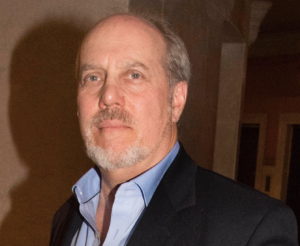
EXCLUSIVE: Broadway’s oddest and most enduring financing-scandal-turned-courtroom-drama has closed.
After six years, 471 legal filings, one trial and another that had been on tap, Rebecca producer Ben Sprecher has ended his effort to hold his former press agent accountable for the collapse of his musical. Last month, Sprecher settled his personal lawsuit against publicist Marc Thibodeau, obviating a second trial concerning the aborted Broadway show.
Sprecher and Thibodeau declined to comment about their settlement, which was noted on the New York State Supreme Court website. Financial terms weren’t disclosed. In a related case, Rebecca Broadway LP, an entity controlled by Sprecher, will not appeal the modest $90,000 in damages a jury awarded it in 2017, according to people familiar with the situation. Rebecca Broadway had earlier filed its intention to appeal for a larger award.
The pact ends a cautionary tale of theatrical fundraising gone awry. It dates back more than a decade, when Sprecher and a producing partner, Louise Forlenza, decided to transfer an adaptation of Daphne Du Maurier’s 1938 gothic novel — set on the fictional estate of Manderley — from Vienna to Broadway.
Following financial and logistical setbacks, the producers were derailed by a Long Island stock broker they contracted to complete the $12 million minimum capitalization. The grifter invented four fictional overseas investors who purported to commit $4.5 million — until the largest of the non-existent whales supposedly died of malaria. (There’s no evidence that Sprecher was aware of the con. Or that he did much due diligence about the broker, Mark Hotton, who was later arrested and is scheduled to be released from Federal prison in 2025.)
Soon after, a real-life angel emerged, a prospective co-producer named Larry Runsdorf. He backed out after he and his lawyers received unsolicited emails from Thibodeau, written under pseudonyms, that raised red flags about the show’s prospects and financing. Thibodeau said in one of the emails that he was trying to save an innocent man from losing money.
Sprecher insisted that he and Forlenza would’ve been able to open the show had they received Runsdorf’s $2.25 million. Thibodeau’s lawyers countered that the producers still faced a seven-figure shortfall.
In May 2015, Judge Jeffrey Oing partially vindicated Sprecher by ruling that Thibodeau breached his contract with Rebecca Broadway by sending the emails to Runsdorf. The jury at the 2017 trial also found that Thibodeau wrongfully interfered with Rebecca Broadway’s contract with Runsdorf, although the damages it awarded were negligible given the years that the producers worked on the show and the millions that investors lost.
Sprecher’s personal suit was set back in the fall of 2018, when Judge Paul Goetz narrowed it to exclude lost income from Rebecca. Had the case gone to trial, it would’ve focused on other Sprecher projects that the producer claimed were indirectly sabotaged by Thibodeau’s emails, and “the loss of income due to [Sprecher’s] inability to find employment in the theater community.”
Forlenza, who is a certified public accountant, sued Thibodeau in 2015 and dropped the suit last year.
In a résumé posted on Sprecher’s LinkedIn page, the theater veteran said he plans to open The Exorcist in New York next spring. The play, which John Pielmeier adapted from William Peter Blatty’s 1971 novel, earned mixed reviews in London in 2017.
Thibodeau, who testified that Sprecher and Forlenza pursued him “viciously” in court, continues to work as a press agent.
And Sprecher’s lawyers, Erik Groothuis and Jonathan Mazer of the law firm Schlam Stone & Dolan, have launched a new business: a one-day arbitration service to resolve commercial disputes, called the Same Day Justice Program. Groothuis said that given the complexity and the emotions involved, the Rebecca mess wouldn’t have been a good candidate for the new venture.
Note: This story was corrected to say that Forlenza dropped her suit. It previously said that she and Thibodeau reached a settlement.

